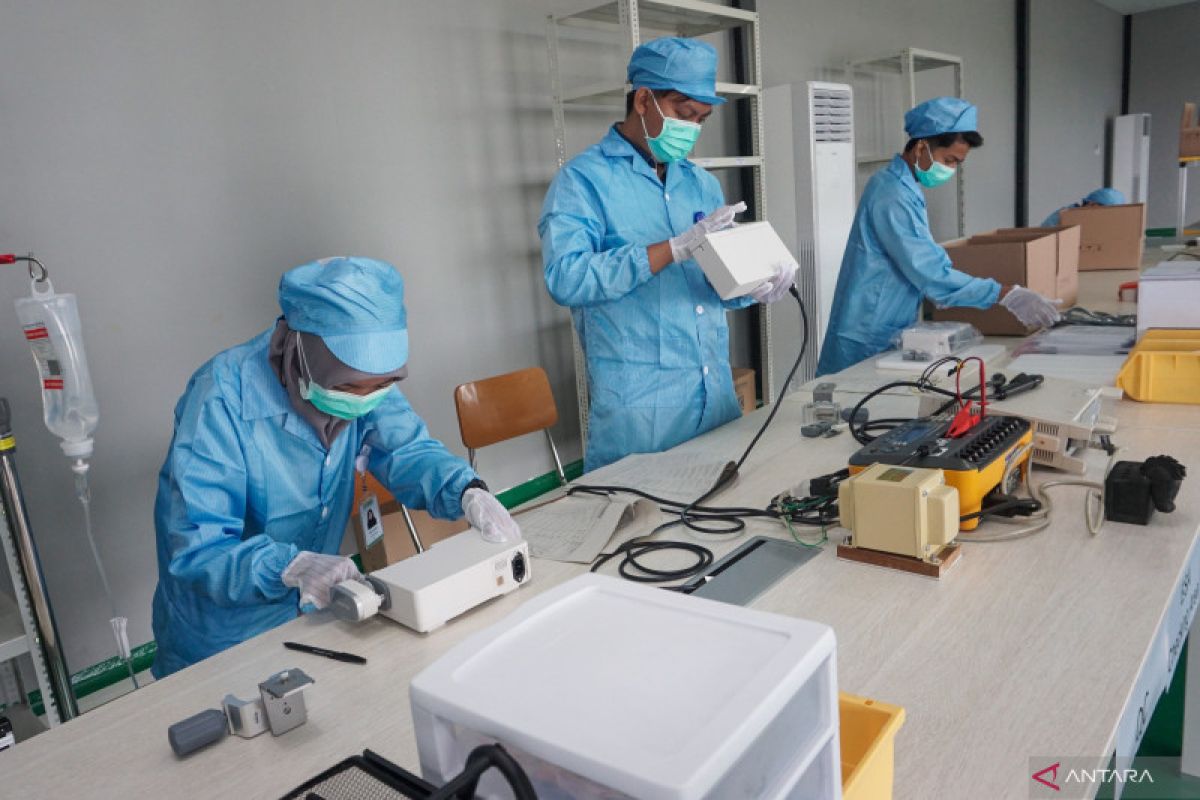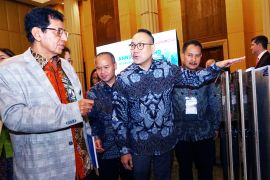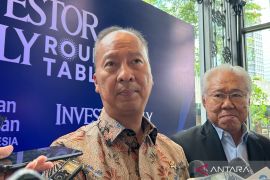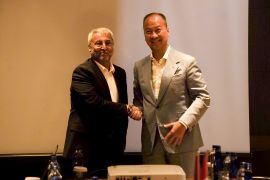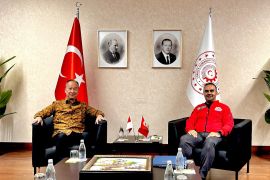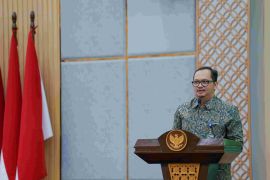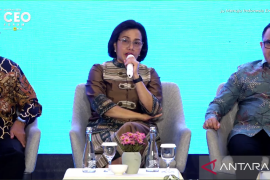Regarding manufacturing, whether you like it or not, you must be smart. We must know the potential for recession but must not be afraid. We have to pay more attention to the manufacturing sub-sectors that have high potentialJakarta (ANTARA) - The Indonesian government is optimistic that the domestic manufacturing industry would continue to thrive amid the threat of recession and global uncertainty in 2023.
Assistant Deputy for Investment Acceleration Strategy and Policy at the Coordinating Ministry for Maritime Affairs and Investment, Ferry Akbar Pasaribu, stated that the government is not apprehensive about the global prognosis, as opportunities for development of the national manufacturing industry are still wide open.
“Regarding manufacturing, whether you like it or not, you must be smart. We must know the potential for recession but must not be afraid. We have to pay more attention to the manufacturing sub-sectors that have high potential," Pasaribu remarked.
At least two industrial sectors in the manufacturing sector, with bright potential going forward, are semiconductors and health.
The semiconductor industry is considered crucial, as it is needed in almost all sectors right from mobile phones, laptops, and household furniture, to cars.
The chip or semiconductor industry does not have many players and is limited to countries that produce it, such as Taiwan; China, with not-so-successful production; and Japan and Korea, with low production.
Related news: Minister ensures pharmaceutical industry maintains drug quality
From these records, Indonesia can reap this potential owing to its large number of locations and much better electricity support.
It is not easy to run the chip business, as it is quite expensive, with the special workers’ qualification and advanced infrastructure. Moreover, the factory’s electricity must run round the clock every day.
Meanwhile, the health industry is considered prosperous since it will always have a market. These two industries are big and can aid in boosting Indonesia’s welfare.
The Indonesian manufacturing industry continues to experience positive trends, especially during the recovery period, after being affected by the COVID-19 pandemic.
Based on the Making Indonesia 4.0 roadmap, there are seven sectors, including in the development priorities readiness, to enter the industrial 4.0 era, namely the food and beverage, textile and clothing, automotive, electronics, chemical, medical device, and pharmaceutical industries.
The non-oil and gas processing industry sector is currently becoming the biggest contributor to the national economy, at 16.10 percent, while growth of this sector in the third quarter of 2022 reaches 4.83 percent year-on-year (yoy).
Unfortunately, despite several industrial sectors having recorded brilliant growth performance in the third quarter of 2022, many of them also showed signs of declining in line with the weakening global economy.
Several industrial sectors that grew positively included the base metal industry; machinery and equipment industry; industrial metal goods, computers, electronic goods, optical and electrical equipment to the transportation equipment industry.
Meanwhile, several industrial sub-sectors indicated to have been affected by the weakening global economy were the food and beverage industry, chemical industry, pharmaceuticals and traditional medicines, the non-metallic mineral goods industry, and the furniture industry.
Related news: September manufacturing PMI highest in 8 months: minister
Trust in Indonesia
On the other hand, amid uncertainty in global economic conditions, national and global manufacturing industry players still place high trust in Indonesia. This is apparent from the realization of investment in the manufacturing industry sector that reached Rp365.2 trillion during the January-September 2022 period.
This achievement increased by 54 percent as compared to the same period last year of Rp236.8 trillion.
Referring to data from the Ministry of Investment/BKPM, during the January-September 2022 period, the manufacturing industry sector contributed 40.9 percent to the total investment that reached Rp892.4 trillion.
Acting Director General of the Chemical, Pharmaceutical and Textile Industry (IKFT) of the Ministry of Industry, Ignatius Warsito, explained that several manufacturing sub-sectors were still growing, although some were slowing due to a decrease in orders from Europe.
"The slowdown is due to a decrease in European orders. However, we are still optimistic," he remarked.
The Ministry of Industry has also prepared policy instruments as a short-term solution until early 2023.
This measure was taken since the government cannot continue to expect exports since all countries will also attempt to take steps to survive and expand.
"We want to see how far the domestic industry is able to withstand this wave of recession. The import substitution policy has become part of our instrument in the last two years by maintaining the supply of raw and auxiliary materials to help the IKFT sector utilities," he stated.
Related news: Aerospace industry revitalization supports 2045 Vision: Bappenas
Warsito noted that the industrial sub-sectors that he handles are unique and dynamic, so it should be explored through appropriate handling efforts.
However, industrial sub-sectors that are still growing will continue to be encouraged to grow in terms of competitiveness, while those that are slowing down will be guarded to survive.
"We are talking about the level of productivity, which we can maintain if the supply of raw materials is not disrupted. The energy used is also maintained, which includes supply and price. We have also assigned our team through the task force ordered by the minister to carry out surveillance in an effort to support the resilience of the IKFT sub-sector industry," he said.
Warsito, who concurrently serves as Expert Staff to the Minister of Industry for Capacity Strengthening of the Domestic Industry, also emphasized that the potential for the domestic market must also be strengthened amid uncertainty in the export market.
The Program to Increase the Use of Domestic Products (P3DN) as well as surveillance through business matching is a short-term solution to meet the supply chains in Indonesia.
Related news: BI launches books on manufacturing, tourism development amid pandemic
Related news: Indonesia's manufacturing PMI slides to 51.8 in Oct
Editor: Fardah Assegaf
Copyright © ANTARA 2022
